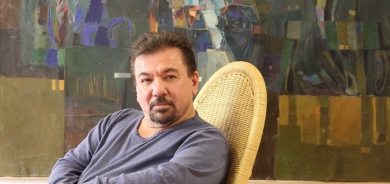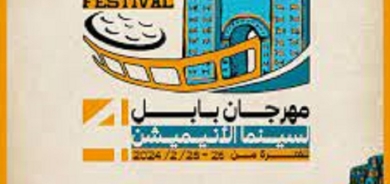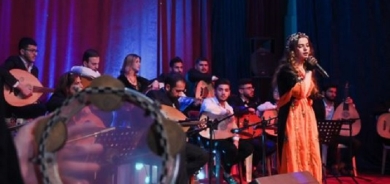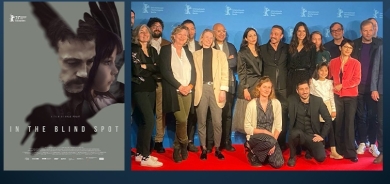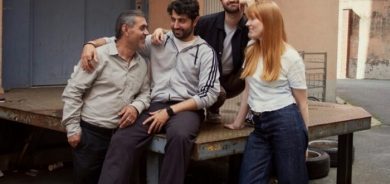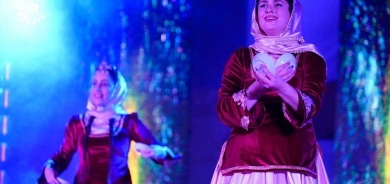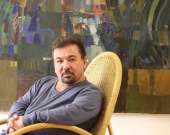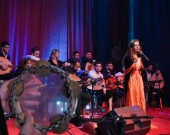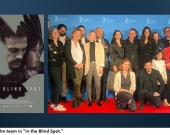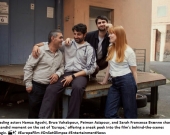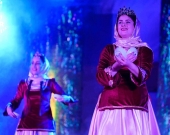French director's new film highlights Kurdish unity, female resistance against ISIS
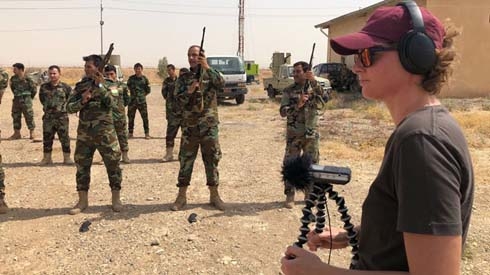
She told Kurdistan 24 in an exclusive interview that, as the writer and director of Soeurs d’Armes (Sisters in Arms), she wants to highlight what has united Kurdish fighters under one flag: their resistance against the Islamic State.
“It recounts the darkest stories of oppression through what actually happened to the Yezidis and the brightest stories of courage, that of the Kurdish fighters and Kurds in general,” she said. “I would like the whole world to know what they have done for us.”
Fighting religious extremism
For 20 years, Fourest has reported on the threat posed by religious extremists to women’s rights.
“Given that I have been targeted by Islamist fundamentalists for years, and after the January 7 [2015] attack on the [Charlie Hebdo] newspaper where I lost a great deal of friends, I could no longer fight fundamentalist propaganda without my regular tools – writing and words.”
She said that she was so enraged by the brutality of Islamic State fighters that she almost considered going “to the front to support all those fighting. When the first stories of Yezidi women abducted by ISIS came out, I finally understood how to be useful - from behind the camera lens. I decided to make a film, but an epic feature worthy of both the moment, the fighters, and this war.”
The movie tells the story from several points of view: a young Yezidi woman named Zara who escapes the Islamic State and joins the Kurdish resistance, a Kurdish Peshmerga colonel, a Kurdish guerilla commander, and international volunteers who join the fight against the extremist group.
“In the film, there is an Italian anarchist, a former American soldier, two French (one Jewish, the other of Algerian origin), and a Kurd from the diaspora.”
A dream of Kurdish unity
One of the major goals of the movie is to show how Kurds, despite their various divisions, fought together against the Islamic State and saved the world from this threat, she said. “For centuries, politics and the game of states has been striving to divide the Kurds to better rule [them]. I like the idea that a film can bring them together [using] fiction.”
The film shows footage from multiple Kurdish factions, including fighters from the Iranian Kurdish (Rojhilati) PAK party, Yezidi Peshmerga, and the Kurdish Women’s Protection Units (YPJ) in Syria.
“My utopia is to pay homage to all the Kurds without distinguishing them, so that one day they will remember that they have this victory in common, and perhaps a common future.”
She added that non-Kurds will not likely make the distinction between the different Kurdish factions, such as female fighters from the YPJ or Peshmerga forces.
“Seeing the film, they will simply say, ‘The Kurds have saved us. We must not forget them,’ neither when the Turks bomb them in Syria, nor when Iraqi Kurdistan claims independence.”
For this reason, she also created a fictional flag “that I drew and which is inspired by the colors of Kurdistan. I know it will be confusing for those who know well the field, but you will see guerrilla uniforms and Peshmerga fighting side by side in this film. This is not the reality, but it is the truth of this war.”
Kurdish heroism
During her work as a journalist, Fourest went to Sinjar and Iraqi Kurdistan before and after the fall of Mosul, the former capital of the Islamic State in Iraq. “I met survivors from almost every faction - Peshmergas, PAK, YPJ... My desire from the start was to make an epic feature that lived up to the heroism of these fighters. I did not want to make a political film which would fall prey to internal wars and group factions.”
“It may have been more realistic to do so,” she said, “but it would have reached only those that had already been convinced.”
She dreams that her movie will reach youth in the West that are at risk of being indoctrinated by radical groups like the Islamic State on the internet and believe they could save the world by joining them. Hundreds of foreign volunteers, however, have also joined Kurdish forces to fight the Islamic State.
“If young people are hungry for idealism, I would rather they follow in the footsteps of heroes that are less visible on television than the terrorists - these young volunteers who have left everything behind to join the Kurdish resistance.”
Kurdish actors
Though the film was shot in Morocco, Fourest said it was crucial to use Kurdish and Yezidi actors to play the main roles. Two of them are Dilan Gwyn, who plays Zara, and a Peshmerga colonel is played by Korkmaz Arslan, who Fourest discovered through the work of Kurdish director Hiner Saleem.
Though a Yezidi actress first slated to play the role of a woman in a slave market was not permitted by Moroccan authorities to enter the country due to her Iraqi passport, she was replaced with German Yezidi actress Shaniaz Hama Ali.
For the international volunteers, Fourest chose European actresses such as Amira Casar to play the commander. Though Casar is well-known in France, said Fourest, “What few people know is that she comes from a family of Iranian Kurds and fighters.”
Influences
Apart from her travels, she also has had many friends over the years who have deepened her understanding of the Kurds.
Among them she said, were “the war reporter Jérémy André, Bernard-Henri Lévy, Dr. Frédéric Tissot [former French Consul in Erbil], and Patrice Franceschi. They helped me significantly each in their own way.”
She said she also followed Kurdish fighters from various groups on social media, but stressed that the point of her movie is not to show the hard reality of intra-Kurdish divisions, but instead the truth behind the emotion. “Otherwise, it would be a documentary, many of which already exist, and are very good.”
Breaking barriers
She had to struggle to get financial support for the film, especially since another already existed about Kurdish female fighters called Girls of the Sun, which she did not watch in order to keep her original vision for Sisters in Arms alive.
“I fought to explain to the financial teams that there were 50 war films on Vietnam, all made by men, and that the world would need more films made by women on this specific war, won partly by women.”
“I sincerely hope that we will have at least 50 films on this war, which is also a revolution in terms of iconography. This is the first time that women are no longer prey on the battlefield but a strong weapon,” she said. “This deserves to be an inspiration for moviemakers for decades!”
She added that she tried to avoid "Orientalizing" Kurdish female fighters, for which she drew on her twenty years of experience as a journalist and a feminist. “Idealism is clearly alive through my characters. My challenge lay elsewhere; to make a film for the general public which had a powerful narrative [and] with complex characters, all in order to make a committed and true war movie.”
She hopes that the film will show the complexity of the situation for Yezidis, the Kurdish identity, and tensions between France and the US over the war in Iraq, “but the main message of the film is feminist.”
Kurdish Independence
The movie also tackles the Western betrayal of Kurdish allies in relation to their desire for independence, as discussed at the end of the film through the dialogue of one of the characters.
On Sep. 25, 2017, the Kurdistan Region held a referendum on independence, which saw 93 percent of people favoring secession from Iraq. The United States, the United Kingdom, and the United Nations were critical of the vote’s timeframe and did not stop Iraqi forces’ Oct. 16, 2017 attack that pushed Kurdish Peshmerga from Kirkuk and other territories disputed by Baghdad and Erbil.
Fourest said she wrote the scene that addresses these events “long before the referendum because it was predictable and my job, as a writer, is to anticipate the worst. The abandonment of the Kurds is a recurring tragedy of history.”
“Movies can change perceptions,” she concluded. “With this film, my hope is that the world does not forget what the Kurds have done for us.”
Editing by John J. Catherine
By Wladimir van Wilgenburg

